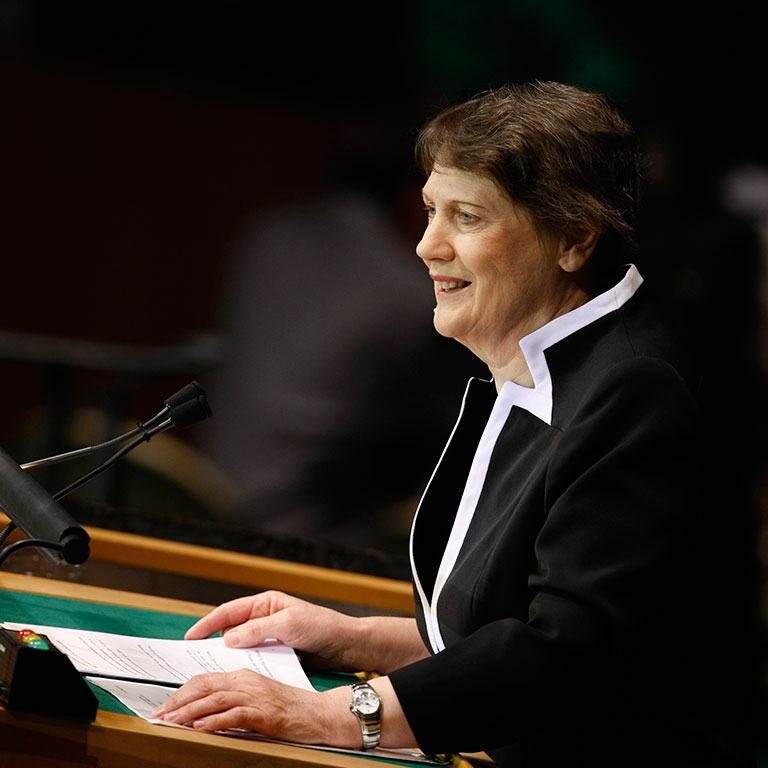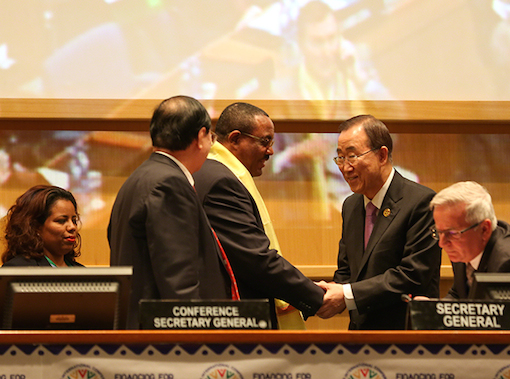
Small Island Developing States (SIDS) share a number of common challenges and urgently need increases in all forms of financing if they are to meet the post 2015 development goals, according to two new UN Development Programme (UNDP) reports launched late Wednesday at the Third International Conference on Financing for Development in Addis Ababa, Ethiopia.
The challenges range from exposure to natural hazards and economic shocks, to slow economic growth, limited capacities to raise domestic resources and high debt—and the urgent need for increases in all forms of financing. .
“The Financing for Development Conference is an important opportunity to respond to the call from SIDS to take a fresh look at their financing needs, including reviewing the current criteria for accessing concessional finance. If left unresolved, the current challenges could undermine SIDS’ sustainable development,” UNDP Administrator Helen Clark said at the launch. “These reports advance thinking on how to improve current approaches.”
The first report on global SIDS financing issues, compiles up-to-date data on financing flows to SIDS and discusses their financing challenges.
It represents an invitation to the international community to take a renewed look at SIDS financing needs, including how innovative financing mechanisms could play a role in SIDS development.
The report proposes a forward-looking agenda to tackle the financing challenge and position SIDS to meet their sustainable development aspirations.
Approaches such as exploring the desirability of a Heavily Indebted SIDS initiative, the expanded use of debt-for-climate change swaps, increasing financial instruments that reduce risk and reforming eligibility criteria for access to concessional finance are suggested as having the potential to make a positive impact for SIDS. The international community is invited to take forward these new approaches.
The report also calls, in particular, for international lenders and donors to take into account factors beyond income alone, and to take a more ‘multidimensional’ approach to finance needs.
These factors include countries’ capacities to mobilize domestic resources; their capacity to leverage affordable private finance; their debt levels; their vulnerability to shocks; their social indicators; and the type of project being funded. This would provide a more accurate picture of countries’ financing needs.
The particular challenges of the Caribbean SIDS are outlined in a second report. The report highlights the development financing context in the Caribbean and makes a case for a review of eligibility criteria to access concessional financing.
It shows how Caribbean countries are, for the most part, ineligible for concessional finance due to their status as middle-income countries, with average national per capita income levels above the international financial eligibility benchmark. Yet, the report underscores their extreme economic and environmental vulnerabilities which make them – like other SIDS – a special case for development.
The sub-region has made important development progress in areas such as health and education, but many challenges remain such as crime and violence, unemployment, rising inequality and high infrastructure investment needs.
Caribbean SIDS are also disproportionately exposed to climate change. Achieving middle-income status, high debt levels means that many donors have reduced or withdrawn much needed development assistance.
SIDS are also clearly articulating their needs and aspirations in the post-2015 development agenda. The Praia Declaration agreed in June 2015 in Praia, Cabo Verde, following the High Level International Conference on Sustainable Development Goals in Middle Income and Small Island Developing States. It establishes a firm vision and needs for African SIDS, including with respect to development finance.











